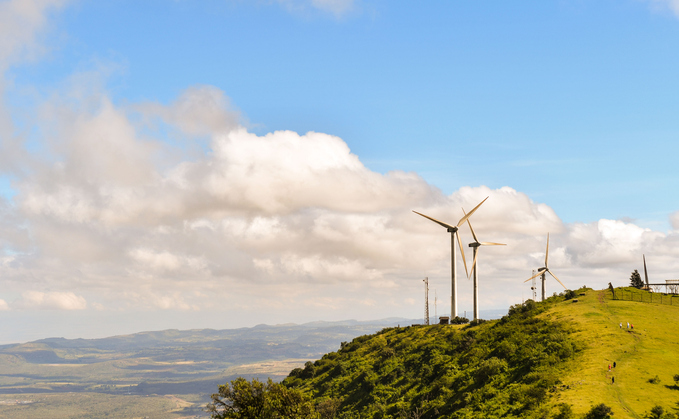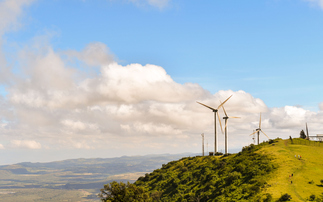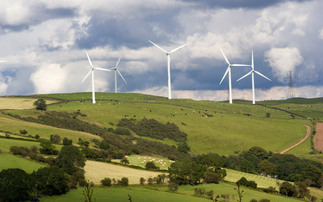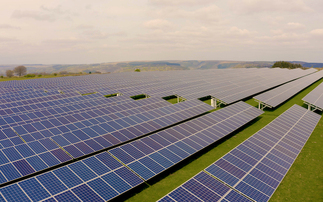
Credit: iStock
Global energy goals can be met, provided governments press ahead with major investment in grids, focus on energy efficiency, and deliver ambitious national climate plans
Tripling renewable energy capacity and doubling the rate of energy efficiency improvements by 2030 is possible, if governments work to embed the landmark global energy goals into national policymaking and embark on a major programme of grid upgrades.
That is according to the latest report from the International Energy Agency (IEA), which explores what nations need to do to achieve the energy targets agreed last December at the COP28 Climate Summit in Dubai and models the impact of reaching the goals on the global clean energy transition.
At the Dubai Summit, countries pledged to triple renewable energy capacity and double the rate of energy efficiency improvements by 2030, while accelerating the deployment of other low-emission technologies and transitioning away from the use of fossil fuels in energy systems.
The IEA said meeting the targets would depend on countries embedding the pledges in the national climate action plans that governments are required to submit to the UN next year under the rules of the Paris Agreement.
The next round of national climate plans - known as Nationally Determined Contributions (NDCs) in the UN jargon - are expected to cover the five-year period from 2030. Governments are facing calls from campaigners and businesses to significantly strengthen their NDCs, so as to accelerate decarbonisation efforts and keep alive the slim chance of meeting the Paris Agreement goal of limiting temperature increases to 1.5C or well below 2C this century.
The IEA said achieving the so-called "tripling" and "doubling" targets also hinges on a string of enabling conditions, including a push to modernise 25 million kilometres of electricity grids and build out of 1.5GW of energy storage capacity, which would allow the current boom in renewables development to continue.
IEA executive director Fatih Birol said countries had an opportunity to put the global energy sector on a "fast track towards a more secure, affordable and sustainable future" by achieving the 2030 goals.
"To ensure the world doesn't miss this huge opportunity, the focus must shift rapidly to implementation," he said. "As this new IEA report shows, the COP28 energy goals should lay the foundation for countries' new climate targets under the Paris Agreement - they are the 'North Star' for what the energy sector needs to do. And further international cooperation is vital to deliver fit-for-purpose grids, sufficient energy storage and faster electrification, which are integral to move clean energy transitions quickly and securely."
The IEA has called on governments to focus more attention on ramping up energy efficiency programmes, calling on them to develop "granular, country-specific" approaches to delivering the landmark of goal of doubling the rate of energy efficiency improvement by the decade's end.
It also calls on leaders of advanced economies to accelerate electrification of heating and electric vehicles (EVs), which are significantly more efficient than fossil fuel-powered alternatives. Meanwhile, governments of emerging economies are urged to focus on embracing more demanding efficiency standards, particularly for cooling equipment such as air conditioners, and nations without full access to modern forms of energy should concentrate on enabling the roll out of clean cooking supplies.
Achieving the goal of doubling energy efficiency by 2030 alone would cut energy costs by almost 10 per cent reduce emissions by 6.5 billion tonnes and strengthen countries' energy security, according to the IEA.
In addition, the report calculates that achieving the COP28 energy goals in full would cut global emissions by 10 billion tonnes by 2030 compared to current trends. It said such steep emissions reductions would give the world a "fighting chance" of meeting the Paris Agreement's goals of capping global temperature rise "well below" 2C and aiming to limit it to 1.5C.
The IEA and others have repeatedly warned that despite the rapid roll out of renewables and clean technologies in recent years, the world remains off track to meet both its clean energy goals for 2030 and the overarching temperature goals set under the Paris Agreement. According to the UN, the world is on track for between 2.3C and 2.9C of warming even if current national emissions targets are met.
Consequently, governments are facing growing calls to strengthen their targets and deliver policies and investments that can help ensure they are met.
Want to understand what is going on at the cutting edge of sustainability? Check out BusinessGreen Intelligence - the premier information for professionals focused on the UK's green economy.






